PURITY OF BLOOD
Arturo Prez-Reverte
TRANSLATED FROM THE SPANISH BY
Margaret Sayers Peden

A PLUME BOOK
PLUME
Published by Penguin Group
Penguin Group (USA) Inc., 375 Hudson Street, New York, New York 10014, U.S.A.
Penguin Group (Canada), 90 Eglinton Avenue East, Suite 700, Toronto, Ontario, Canada M4P 2Y3 (a division of Pearson Penguin Canada Inc.)
Penguin Books Ltd., 80 Strand, London WC2R 0RL, England
Penguin Ireland, 25St. Stephens Green, Dublin 2, Ireland (a division of Penguin Books Ltd.)
Penguin Group (Australia), 250 Camberwell Road, Camberwell, Victoria 3124, Australia (a division of Pearson Australia Group Pty. Ltd.)
Penguin Books India Pvt. Ltd., 11 Community Centre, Panchsheel Park, New Delhi110 017, India
Penguin Books (NZ), cnr Airborne and Rosedale Roads, Albany, Auckland 1310, New Zealand (a division of Pearson New Zealand Ltd.)
Penguin Books (South Africa) (Pty.) Ltd., 24 Sturdee Avenue, Rosebank, Johannesburg 2196, South Africa
Penguin Books Ltd., Registered Offices: 80 Strand, London WC2R 0RL, England
Published by Plume, a member of Penguin Group (USA) Inc. Previously published in a Putnam edition.
Copyright Arturo Prez-Reverte, 1997
English translation copyright Margaret Sayers Peden, 2006
All rights reserved
 REGISTERED TRADEMARKMARCA REGISTRADA
REGISTERED TRADEMARKMARCA REGISTRADA
The Library of Congress has catalogued the Putnam edition as follows:
Prez-Reverte, Arturo.
[Limpieza de sangre. English]
Purity of blood / Arturo Prez-Reverte;
translated from the Spanish by Margaret Sayers Peden.
p. cm.
ISBN: 1-4295-2325-5
I. Peden, Margaret Sayers. II. Title.
PQ6666.E765L5613 2006 2005050984
863'.64dc22
Without limiting the rights under copyright reserved above, no part of this publication may be reproduced, stored in or introduced into a retrieval system, or transmitted, in any form, or by any means (electronic, mechanical, photocopying, recording, or otherwise), without the prior written permission of both the copyright owner and the above publisher of this book.
PUBLISHERS NOTE
This is a work of fiction. Names, characters, places, and incidents are either the product of the authors imagination or are used fictitiously, and any resemblance to actual persons, living or dead, business establishments, events, or locales is entirely coincidental.
The scanning, uploading, and distribution of this book via the Internet or via any other means without the permission of the publisher is illegal and punishable by law. Please purchase only authorized electronic editions, and do not participate in or encourage electronic piracy of copyrighted materials. Your support of the authors rights is appreciated.
For Carlota,
for whom there is no choice
but to fight
Glory and honor blazoned on the quarters of the escutcheon, hidalgos, poets, priests, fabulous Americas, ladies-in-waiting,
galleys that apprehend the infidel, gibbets by the roadside, adventures, and swords flashing on every corner.
TOMS BORRS,
Castilla
PURITY OF BLOOD
CONTENTS
I. SEOR QUEVEDOS DIFFICULT MOMENT
That day there were bullfights in the Plaza Mayor, but constable Martn Saldaas festive fire had been doused. A woman had been found in a sedan chair in front of the church of San Gins, strangled. In her hand was a pouch containing fifty escudos and a handwritten, unsigned note bearing the words, For masses for your soul.
A pious old woman on her way to early church had found the body. She advised the sacristan, and he had informed the parish priest who, after a hurried absolution, sub conditione, made a report to the authorities. By the time the chief constable showed up to make his token appearance in the small plaza of San Gins, local residents and curious bystanders were milling around the sedan chair. The chair and its contents had become the object of a local pilgrimage, and a number of Saldaas catchpoles were needed to hold back the crowd while the judge and the scribe drew up their documents and Martn Saldaa made his cursory examination of the corpse.
The chief constable set about his task in the most leisurely fashion, as if he had time to burn. Perhaps it was because of his history as a former soldierhe had served in Flanders before his wife (at least it was said it had been she) obtained his present position for him. In any case, Madrids chief constable went about his duties at a pace that a certain satiric poetthe gifted-in-wealth-as-well-as-talent Ruiz de Villasecahad described in a poisonous dcima as paso de buey, an oxs pace. It was a clear allusion to the lethargy with which the chief constable picked up his staff of office, or attempted to parry the staffs his wife welcomed.
In any case, if it is true that Martn Saldaa was slow in certain things, he was definitely not so when it came to drawing his sword, or dagger, or poniard, or the well-oiled pistols he was wont to wear in his waistbandall of which clanged like sounds issuing from a smithy. On the night of the third day after the aforementioned dcima had circulated among the gossipers gathered at the mentidero of San Felipe, the most popular of Madrids rumor mills, this same now-not-so-gifted Villaseca had been found at the very door to this house with three sword-tailored buttonholes in his body. He was now extremely well qualifiedwhether from Purgatory, Hell, or whereverto confirm exactly how swiftly the constable could move.
The fact is that from the calm and collected inspection the head constable made of the cadaver, almost nothing was learned. The dead woman was mature, nearer fifty than forty, dressed in a voluminous black gown and a headdress that lent her the look of a duenna, or a ladys companion. Her purse held a rosary, along with a key and a crumpled religious card depicting the Virgin of Atocha. Around the victims neck was a gold chain bearing a medallion of Saint gueda. Her own features suggested that in her younger days she had been well favored. There were no signs of violence other than the silk cord still cutting into her neck, and her mouth, frozen in the rictus of death. From her color, and the rigor, the constable concluded that she had been strangled the preceding night, in that same sedan chair, before being carried to church.

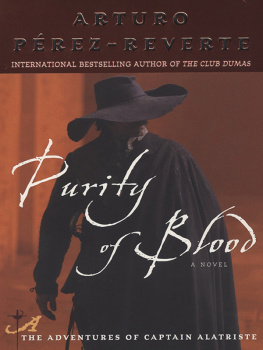
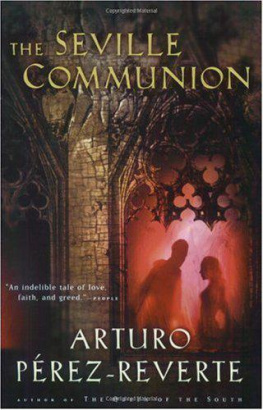
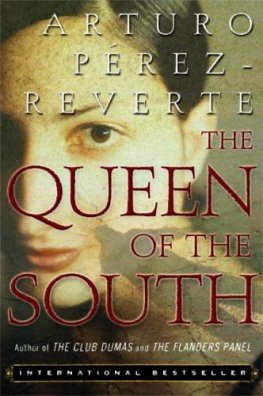
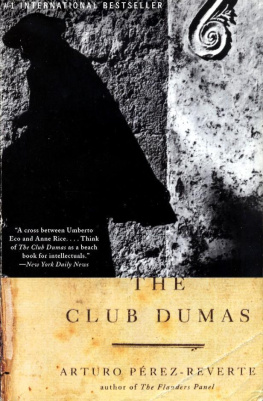


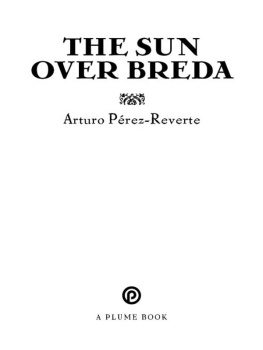
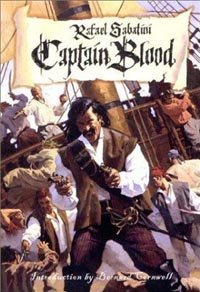
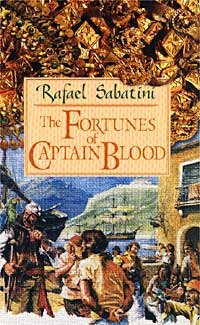
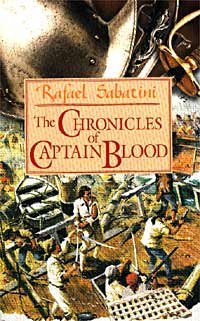

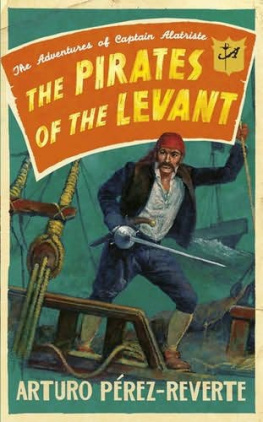
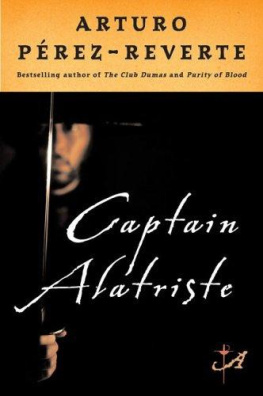

 REGISTERED TRADEMARKMARCA REGISTRADA
REGISTERED TRADEMARKMARCA REGISTRADA